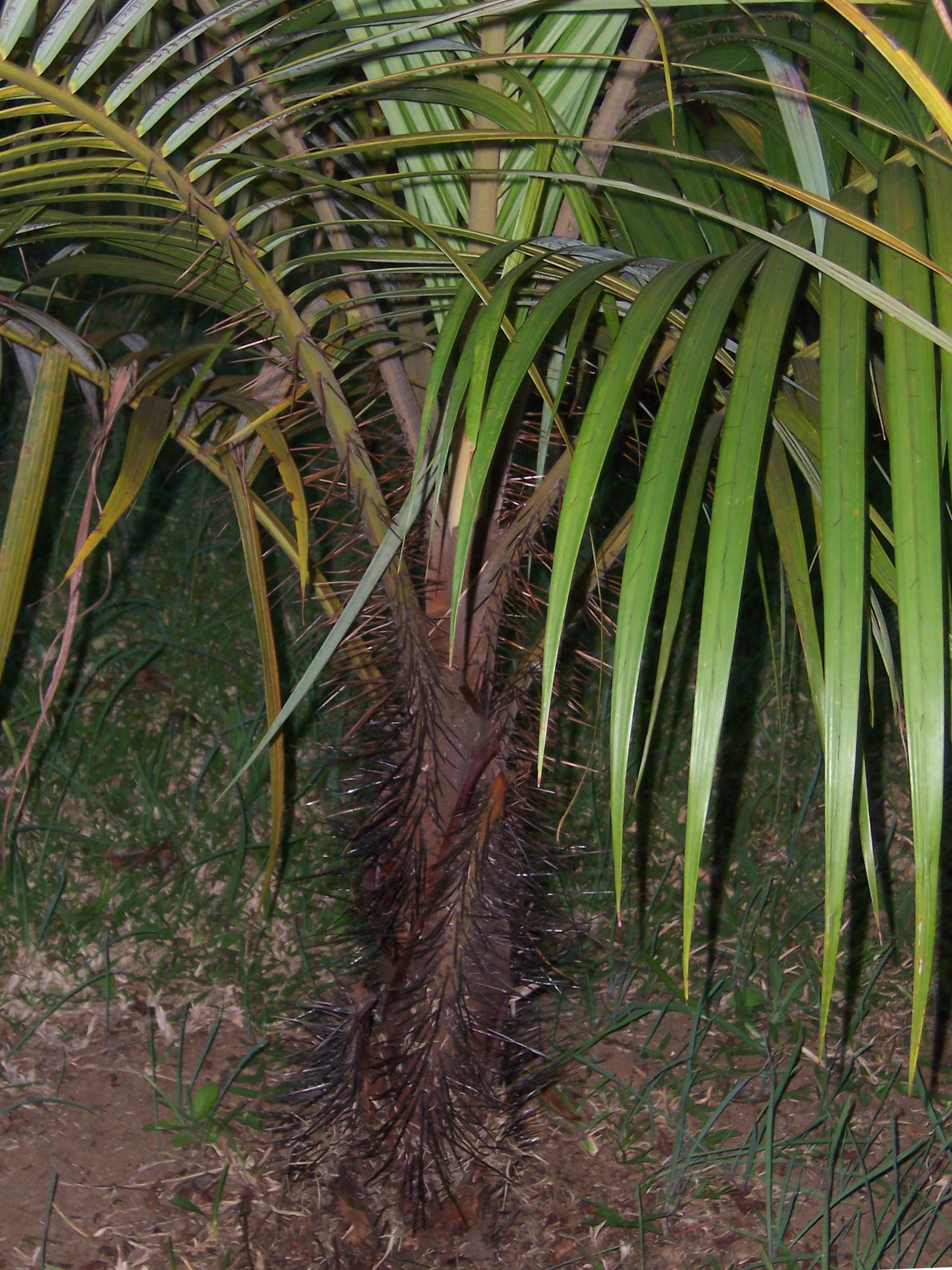- Acanthophoenix
taxobox
name = "Acanthophoenix"
regnum =Plantae
unranked_divisio =Angiosperms
unranked_classis =Monocots
unranked_ordo =Commelinids
ordo =Arecales
familia =Arecaceae
subfamilia =Arecoideae
tribus =Areceae
genus = "Acanthophoenix"
genus_authority =H.Wendl. H.A. Wendland, Flores des Serres et des Jardins de l'Europe 16:181. 1867.]
subdivision_ranks =Species
subdivision = *"Acanthophoenix crinita "
*"Acanthophoenix rousselii "
*"Acanthophoenix rubra "|"Acanthophoenix" is a monoecious genus of
flowering plant in the palm family from theMascarene Islands in theIndian Ocean , where they are commonly called palmiste rouge. A genus long in flux, threespecies are currently recognized, though unsustainable levels of harvesting for their edible palm hearts have brought them all to near extinction in habitat. They are closely related to the "Tectiphiala " and "Deckenia " genera, differing in the shape of the staminateflower .Uhl, Natalie W. and Dransfield, John (1987) "Genera Palmarum - A classification of palms based on the work of Harold E. Moore". Lawrence, Kansas: Allen Press. ISBN-10: ISBN-10: 0935868305 / ISBN-13: 978-0935868302] The name combines the Greek words for "thorn" and "date palm".Riffle, Robert L. and Craft, Paul (2003) "An Encyclopedia of Cultivated Palms". Portland: Timber Press. ISBN-10: 0881925586 / ISBN-13: 978-0881925586]Description
The solitary trunks are robust and conspicuously ringed, sparsely armed in youth, with a slightly swollen base. The tubular
leaf bases wrap the trunk, forming a 60 - 90 cmcrownshaft covered in hairy tomentum and spines. The leaves are pinnate, 2 m long, and borne on a tomentose petiole, sparsely to densely spiny. The leaflets emerge from the hairy rachis in a flat plane, dark green above and lighter below, to 30 cm long, once-folded with a red or yellow, toothed midrib.The
inflorescence sprouts at the crownshaft base, branched to two orders with a short, winged, tomentose peduncle, colored brown and bearing spines. There is a single peduncular bract, the rachis long, often spiny, bearing ivory to red rachillae. Theflowers are spirally arranged on first order rachillae, subtended by triangular bracts, with pairs or single staminate flowers on the tips; the branchlets elongate and become green in fruit.The staminate flowers are asymmetrical, white to cream to red, the three sepals are short and imbricate, while the three valvate
petal s are three or four times as long. There are up to twelve stamens, exserted at antithesis, on elongated, slender to wide filaments. The anthers are dorsifixed, linear and basally sagittate; thepollen is monosulcate and elliptic with tectate, reticulate exine. The pistillate flowers are ovoid with three broad, imbricate sepals and as many valvate petals. There may be up to nine tooth-like staminodes or none at all; gynoecium uniocular and ovoid with broad, pendulous stigmas. Thefruit is ellipsoidal to subglobose, maturing to black, with a thin endocarp, carrying oneseed . The seed is round with homogeneous endosperm and a basalembryo .Distribution and habitat
They are restricted to
Mauritius andRéunion though the populations have been so disturbed that conclusive statements about their ecology remain elusive. Because the islands were volcanically formed, the palms are often found on sloping terrain from sea level to 1350 m. They are cultivated around the world but the native plants are gravely threatened.References
External links
* [http://www.ipni.org/index.html International Plant Names Index]
* [http://palmguide.org/genus.php?family=ARECACEAE&genus=Acanthophoenix Fairchild Guide to Palms]
* [http://www.ars-grin.gov/cgi-bin/npgs/html/genus.pl?49 NPGS/GRIN]
* [http://data.gbif.org/species/14721613 GBIF portal]
* [http://www.pacsoa.org.au/palms/Acanthophoenix/index.html PACSOA]
* [http://www.plantsystematics.org/taxpage/0/0/79/genus/Acanthophoenix.html Images at diversityoflife.org]
Wikimedia Foundation. 2010.
